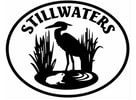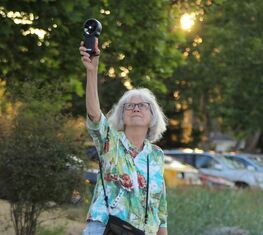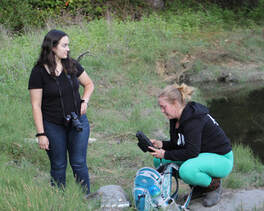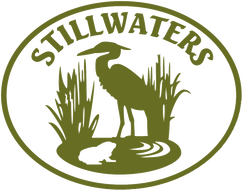Climate Change & Restoration
|
Volunteer Gloria Hill measures wind velocity
at Arness Park. (L-R) Celina DeJong; intern from Huxley College of the Peninsulas and Jenna Wright; Monitoring Assistant assess water quality at our local estuary.
|
We also recognize that in order for restoration to be successful, coastal communities need to be made more aware of the benefits provided by these natural habitats. By providing volunteer opportunities for hands-on involvement with our restoration and monitoring efforts, community members play a huge role in managing their own local resources. Post-COVID, we are working to increase our communication with and presence in the community. Recently, our Program Director, Melissa Fleming, met with the Poulsbo Friends of the Library and explained Stillwaters’ early role in the statewide strategy to replace culverts and restore fish passage in Kitsap streams. Our ongoing monitoring documents ecosystem recovery since two culverts were removed in Kingston, while interns from local universities analyze the data collected.



